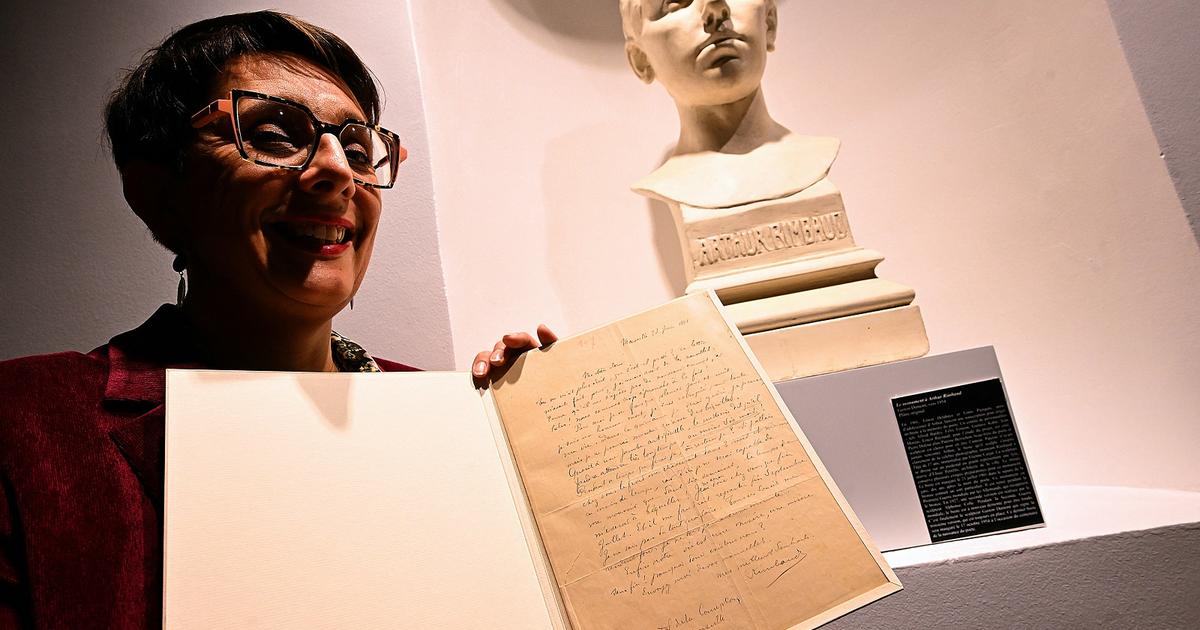This article is taken from the
Figaro Hors-Série Blaise Pascal, the heart and the reason.
It is a libel like thousands have circulated in France against Cardinal Mazarin.
A corrosive piece of writing, secretly published and spread like wildfire.
But this
letter to a provincial
is far from being one more mazarinade.
The subject is theological.
Three major schools clash on predestination and grace: the Thomists, the Molinists (Jesuits) and the Augustinians, to whom the theologians of Port-Royal, disciples of Jansenius, including
Augustinus
was condemned by Rome in 1642 and in 1653. Among them, Antoine Arnauld protests, in two libels, against the injustice done to the Duke of Liancourt, who was refused absolution on the grounds that his granddaughter was a boarder at Port -Royal, and defends the abbey.
Spiritual son of Saint-Cyran, Arnauld had in fact drawn the wrath of many because of his treatise
De la frequent communion
(1643), which called for much more stringency in order to receive this sacrament, and made its author a leader of the Jansenists.
Seizing in these letters the windfall of being able to confuse "
the Great Arnauld
" by reproaching him for two "
errors
on the doctrine of grace and his reading of the Augustinus, his colleagues at the Sorbonne invited him to come and present his opinion, but "
without conferring or discussing
", and swearing in advance to submit to censorship.
Understanding the perfidy of the process, Arnauld prefers clandestinity to a public disavowal, and retires to Port-Royal des Champs.
Read alsoThe editorial of Le Figaro Hors-Série: Blaise Pascal, a man for eternity
It is there that Pascal finds him, and that together they conceive a plan of attack, which calls the public to witness against the shenanigans of theologians more concerned with their worldly arrangements than with the truth.
Who could combine eloquence with clarity, incisive style with argumentation?
Pascal offers a draft.
We print it as is.
On January 27, 1656, the first “
letter written to a provincial by one of his friends on the subject of the present disputes at the Sorbonne
” was published.
Its echo is immense, Arnauld's adversaries are strangled.
In this first anonymous letter, as in those which will follow for more than a year – they will be eighteen in all, for which Arnauld and Nicole will provide Pascal with quotations from the Jesuit treatises which he will deride –, affirms a formidable polemicist, in turn corrosive, sincere, logical and seized with a single concern, that of the truth in the announcement of the faith.
It is in fact what is in question, what it proclaims and what it obliges.
After resounding catchphrases (“
Sir, We were well abused…
”, or “
Sir, There is nothing like the Jesuits…
"), he shows the inconsistency of the reproaches made to the Augustinians, and the intellectual dishonesty of these Jesuits who present themselves as "
spirits of eagles
", "
a troop of phoenixes
", who "
changed the face of Christendom
", while they subordinate their teaching of the truths of faith to the concern of being well seen by the world, and that they serve to each what suits him to hear, thanks to an army of casuists who justify everything and its opposite, including murder.
Expounded by Father Annat, confessor of Louis XIV, the meaning of sin is therefore, from the pen of the author of Les
Provinciales
, reserved for a very small elite who would have an acute awareness of it, the others being protected by their carelessness: “
their life is in a continual search for all sorts of pleasures, the course of which has never been interrupted by the slightest remorse.
All these excesses made me believe their loss assured.
But, my father, you teach me that these same excesses make their salvation assured.
Blessed are you, my father, who justifies people in this way!
The apparent naivety of the beginning gives way to a scathing argument against the Jesuits, caught in the act of incoherence and bad faith.
The Provincials make a lot of noise.
The State got involved: on February 2, 1656, the bookseller-binder Savreux was arrested.
Then the police raid Port-Royal des Champs, looking for a press.
Pascal leaves his home in the rue des Francs-Bourgeois-Saint-Michel to stay, incognito, in poor inns.
He even goes down to Roi-David, opposite the college of Clermont, run by Jesuits.
It is there that two of them come to visit Florin Périer, his brother-in-law, while Blaise is at home, and the sheets of the Provincials have just been delivered from the printer.
They are thrown on the bed whose curtains are closed, in the face of good fathers.
One of them warns Pascal: it is said everywhere that he is the author of the perfidious Letters...
M. Pascal did not give up, says the Abbé de Beaubrun in his Memoirs, and replied that he was obliged to give this advice (…);
that the world could not be prevented from having such suspicions, and that time would one day learn whether these rumors were well founded.
»
Blaise Pascal, heart and reason
, 164 pages, €13.90, available on newsstands and on
Le Figaro Store
.
Cover after the posthumous portrait of Blaise Pascal by François II Quesnel, after 1662 Figaro-Hors-Série









/cloudfront-eu-central-1.images.arcpublishing.com/prisa/2C5HI6YHNFHDLJSBNWHOIAS2AE.jpeg)



